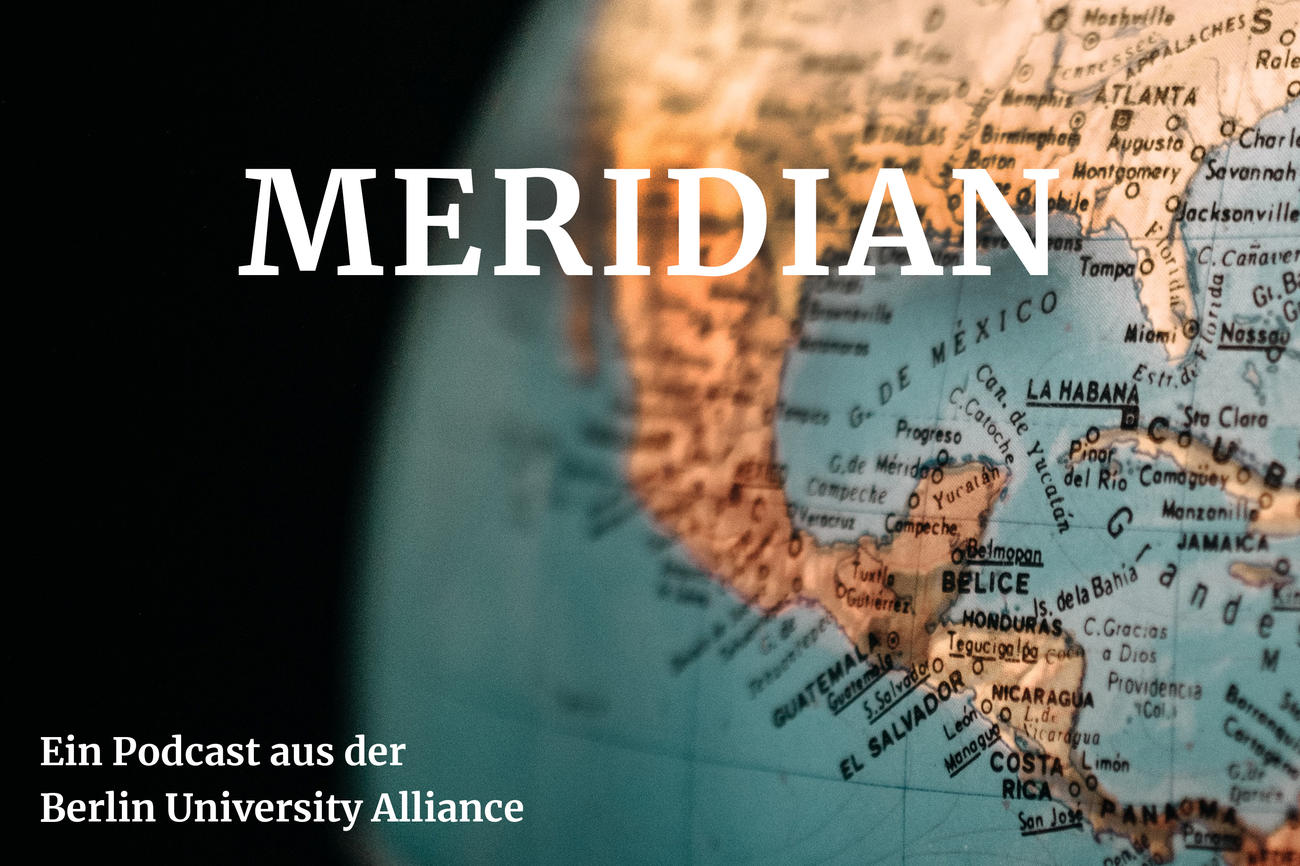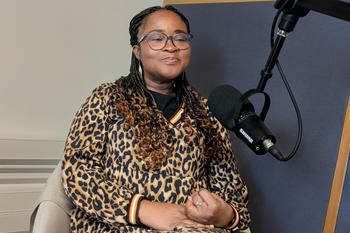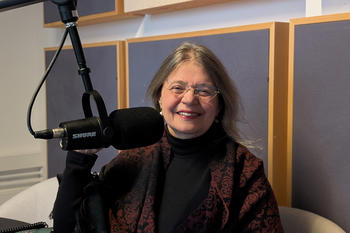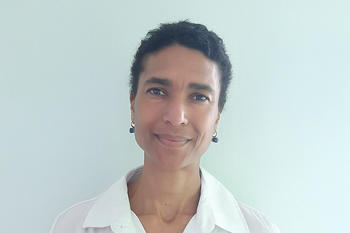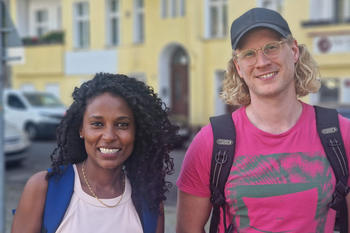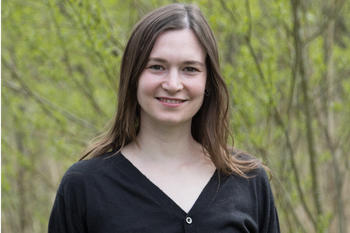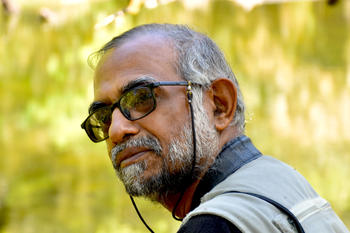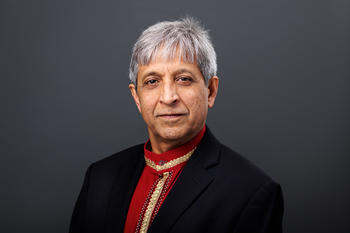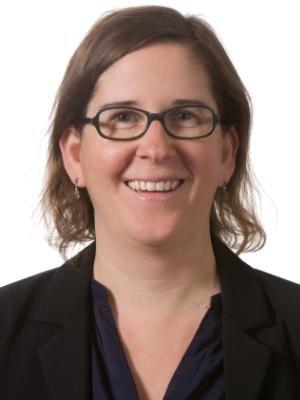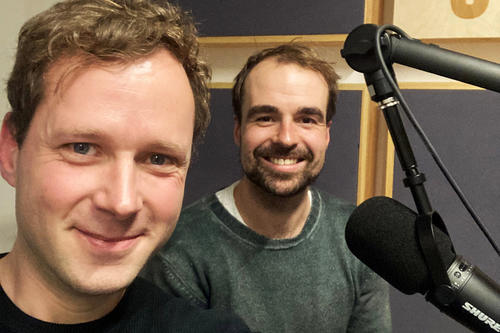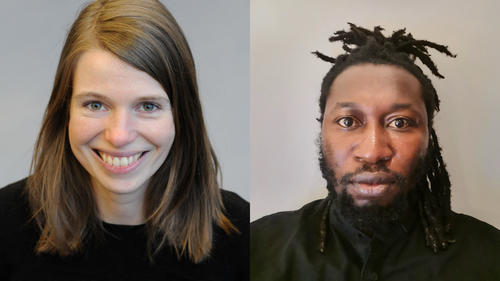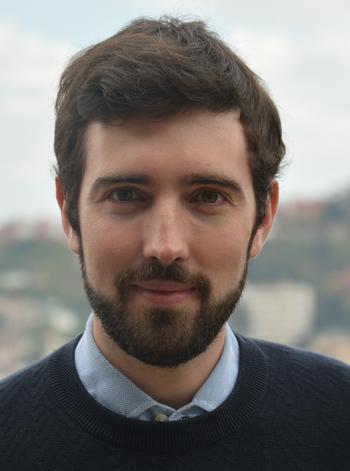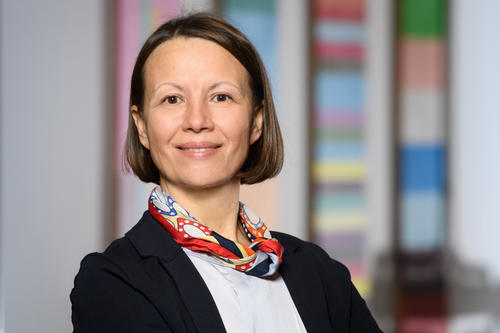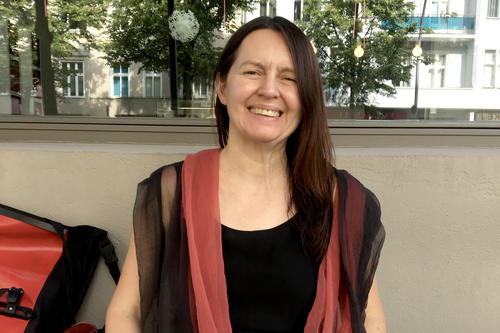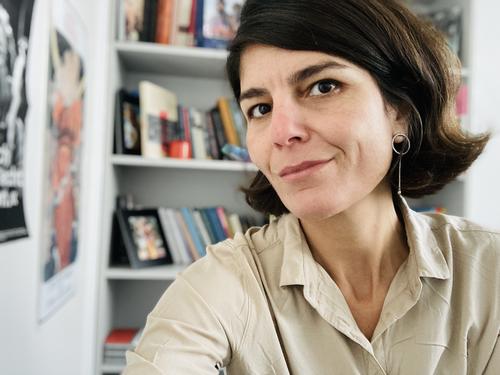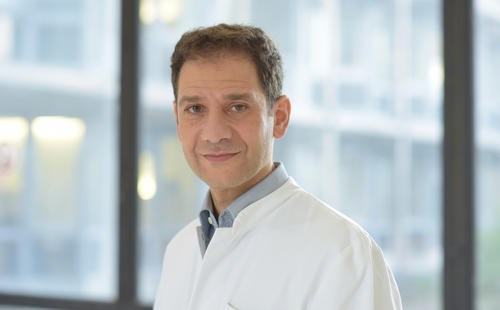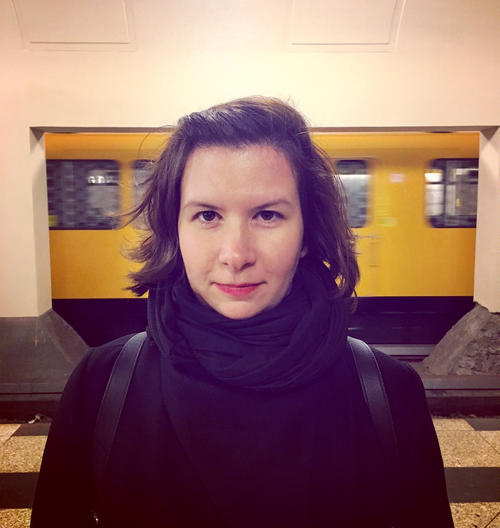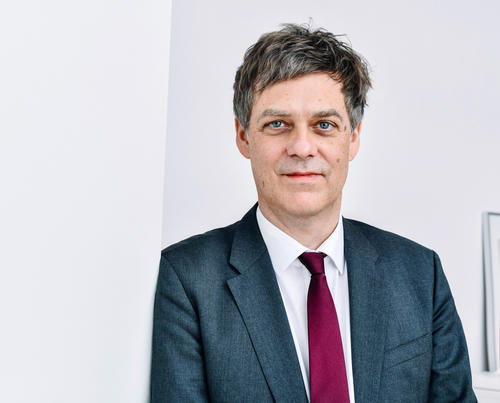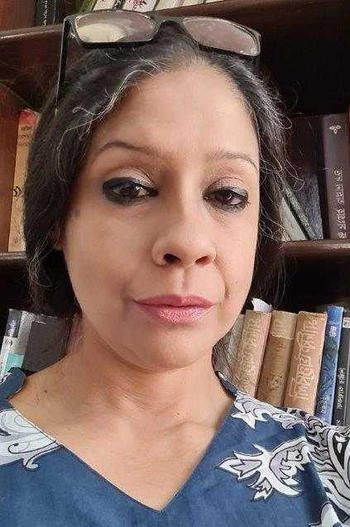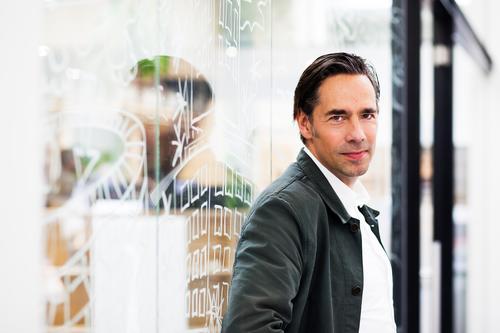Meridian
The science podcast of the Berlin Center for Global Engagement (BCGE) – researchers report on their work between different worlds, from Berlin to Dakar, from Rio de Janeiro to Manila.
The science podcast of the Berlin Center for Global Engagement (BCGE)
Image Credit: Unsplash/La Victorie
With the Podcast, the BCGE showcases the work of researchers addressing issues of cooperation between the Global South and the Global North, academic freedom, and science diplomacy. The researchers talk, among other things, about their interest in their subject, cooperation with partners in the Global South, and current research and debates on it.
Meridian on Spotify
Meridian on Apple Podcasts
Meridian on Google Podcasts
Meridian as RSS-Feed
Episode 20: The Invisible Work of Women: Gender, Labor and Sustainability in Ghana and Worldwide – with Prof. Angela Dziedzom Akorsu
Angela Dziedzom Akorsu is an associate professor of labor and gender studies at the University of Cape Coast, Ghana. She is the DiGENet Audre Lorde visiting professor 2025 at the Berlin University Alliance, hosted by Freie Universität Berlin.
The podcast episode on Spotify and Apple Podcasts.
Around the world, women perform the essential labor that sustains societies — yet this work is too often undervalued or made invisible. From unpaid care work to precarious jobs in the informal economy and emerging roles shaped by digital platforms, women’s experiences are frequently marginalized, even in systems that rely on their contributions. In Ghana and across Africa, these dynamics are deeply rooted in colonial histories and shaped by global capitalism. While the Sustainable Development Goals claim to advance gender equality, they often overlook the structural power imbalances that uphold gendered divisions of labor.
In this episode, journalist Kevin Caners speaks with Professor Angela Dziedzom Akorsu, an associate professor of labor and gender studies at the University of Cape Coast, Ghana, and 2025 DiGENet Audre Lorde Visiting Professor at the Berlin University Alliance.Together, they explore urgent questions: How does the global division of labor shape gendered work structures in Ghana? What parallels or contrasts emerge when compared to Europe — and what might Berlin learn from them? How can African feminist perspectives challenge and reshape global debates on development, sustainability, and knowledge production? What does fair and equitable research collaboration between Africa and Europe truly require?
Professor Akorsu’s career spans international academic work and interdisciplinary inquiry. She earned her BA in Education from the University of Cape Coast (1998), a Master’s in Development Studies from the Institute of Social Studies in the Netherlands (2001), and a PhD from the University of Manchester, UK (2010). Since 2022, she has served as Dean of the School for Development Studies at the University of Cape Coast. Her DiGENet Audre Lorde Visiting Professorship at the Berlin University Alliance, hosted by Freie Universität Berlin, is grounded in a commitment to amplifying the perspectives of those often excluded from mainstream development narratives. The Audre Lorde Visiting Professorship was established by the Diversity and Gender Equality Network (DiGENet) of the Berlin University Alliance.
If you would like to learn more about the Africa Charter, listen to Meridian Episode 17: The Africa Charta: A roadmap for universities towards equitable research partnerships – with Isabella Aboderin.
Episode 19: The Democratization of Knowledge – Open Science from Latin America to the World – with Prof. Fernanda Beigel
Professor Fernanda Beigel is a sociologist based at CONICET and the National University of Cuyo, in Mendoza-Argentina and former chair of the UNESCO Advisory Committee for Open Science.
The podcast episode on Spotify and Apple Podcasts
Open Science is a movement focused on how knowledge is produced and shared, aiming to dismantle the long-standing barriers that have kept academic research behind paywalls and limited to institutional elites. It calls for greater transparency, inclusivity, and accessibility in order to diversify global knowledge systems. Few countries have embraced Open Science as strongly as Latin America. What is the current state of the Open Science movement in this region and what risks of Open Science can be observed? How can Open Science contribute to adressing global challenges? And why is it essential to diversify how knowledge is created and shared?
In this episode, journalist Kevin Caners explores these questions and more with Professor Fernanda Beigel. Fernanda Beigel is a Principal Researcher at Argentina’s National Council of Scientific and Technical Research (CONICET), a Head Professor at the National University of Cuyo (UNCuyo), and the Director of the Research Center on the Circulation of Knowledge (CECIC). She chaired Argentina’s National Committee for Open Science from 2020 to 2023 and led UNESCO’s Advisory Committee for Open Science from 2020 to 2021. She is Principal Investigator of the project Open Science in the Social Sciences and Humanities in Argentina and Germany: Opportunities, Challenges, and Contestations, in collaboration with the Ibero-Amerikanisches Institut and the Berlin University Alliance. Currently, she is a Fellow for Open Science at the Berlin University Alliance, in the Einstein Center for Digital Future.
“Projects that are funded publicly should be open to future generations or other people not to collect the same thing. The circulation of knowledge is going to be reduced and concentrated and more asymmetrical, more unequal,” states Fernanda Beigel.
Episode 18: Giving Birth in Brazil: Gender and Politics in Global Health - with Prof. Simone Diniz
Professor Simone Diniz is a medical doctor and professor at the University of São Paulo, Brazil. She is Audre Lorde visiting professor 2024/25 at the Berlin University Alliance.
Die Podcast Episode auf Spotify und Apple Podcasts
Across the world, health care systems are shaped by inequalities—both in access and in how gender, race, and social class influence medical treatment. Nowhere is this more evident than in maternal health care. From childcare practices to reproductive rights, women's experiences in health care are determined by structures, policies, and interests that often fail to prioritize their needs. “Medicine often starts out from the incorrection of the female body and the belief that women bodies are inferior to technology”, states Simon Diniz. What determines the structures of health care systems? How have gender, race, and class shaped their development? What changes are necessary to better address the needs of women and societies? And what is the role of scientists in this context? Brazil provides a particularly compelling case to explore these questions, as its history of health care system development—situated at the intersection of activism, research, and politics—is well-documented.
Professor Simone Diniz is a distinguished public health expert and advocate for women's health, gender equality, and social justice. A medical doctor by training and a full professor at the University of São Paulo (Brazil), she specializes in preventive medicine, maternal health, sexual and reproductive rights, data science, and equity in healthcare systems. Her extensive work bridges academia, policy-making and activism, including two decades with the São Paulo Feminist Collective on Health and Sexuality.
„Evidence is not enough to change reality,“ states Simone Diniz.
Episode 17: The Africa Charter: A roadmap for universities towards equitable research partnerships - with Isabella Aboderin
Prof. Isabella Aboderin, Chair in Africa Research and Partnerships and Director of the Perivoli Africa Research Institute (PARC), Professor of Gerontology in the School for Policy Studies at the University of Bristol
The podcast episode on Spotify and Apple Podcasts
The Africa Charter for Transformative Research Collaboration, launched in July 2023 in Windhoek, Namibia, is an Africa-centred framework for establishing a transformative mode of research collaborations. Co-created by Africa’s major Higher Education constituencies, the Charter is a major collective effort to address the power imbalances in the global science system and its major effects on international politics and economics. End of 2024 the Berlin University Alliance signed the Africa Charta, starting a new chapter of cooperation with the "Global South".
In this episode, the journalist Kevin Caners discusses with Professor Isabella Aboderin, initiator of the Africa Charta, the reasons and effects of the global power imbalances in knowledge production, how the Africa Charta came into being and how universities and research institutions can develop a road map to put equitable research partnerships step by step into practice. “The Berlin University Alliance has the potential to play a pioneering role in fostering the discourse and work around the transformative collaborations with Africa in the German space”, she states.
Professor Isabella Aboderin is Chair in Africa Research and Partnerships and Director of the Perivoli Africa Research Institute (PARC), Professor of Gerontology in the School for Policy Studies at the University of Bristol, and Speaker of the Advisory Board of the Berlin Center for Global Engagement at the BUA. Her research and engagement focus on the nature and need for transformation in Africa-global North research relations, issues of ageing, and intergenerational relations and care in African contexts.
Episode 16: Calculate with Africa: Transforming the world through mathematics - with Dr Dominic Bunnett and Marwa Zainelabdeen
Dominic Bunnett is a postdoc at TU Berlin working in algebraic geometry and member of the program committee for the Young African Mathematicians program of the Cluster of Excellence MATH+, Marwa Zainelabdeen is a MATH+ doctoral student at the Weierstrass Institute for Applied Analysis and Stochastics and Freie Universität Berlin and lecturer at the University of Khartoum, Sudan.
Die Podcast Episode auf Spotify und Apple Podcasts
Mathematics serves as an engine for innovation across a broad spectrum of applications – from sustainable energy and mobility to health to artificial intelligence. Mathematicians provide the foundations for the use of the ever-growing amounts of data in other disciplines, seeking solutions for future challenges. But how can cooperation with the Global South in mathematics contribute to finding solutions for global challenges? How does international cooperation, for instance with Africa, look like? What do mathematicians do and is maths really a universal language? In this episode, Kevin Caners discusses how mathematics can transform the world with Dr Dominic Bunnett and Marwa Zainelabdeen, both members of the Cluster of Excellence MATH+, a collaboration of FU, HU, and TU Berlin, the Weierstrass Institute for Applied Analysis and Stochastics (WIAS) and the Zuse Institute Berlin (ZIB). MATH+ has ties with African institutions, such as the African Institute of Mathematical Sciences (AIMS).
„International cooperation is the absolute most important and most enjoyable part of one’s research. You cannot get as far by yourself. You are limited by your own mind,“ states Dominic Bunnett.
Episode 15: Global cooperation for the post-fossil age - with Alexandra Krumm
Academic Coordinator of the Transnational Centre for Just Transitions in Energy, Climate and Sustainability (TRAJECTS), Technische Universität Berlin
The podcast episode on Spotify and Apple Podcasts
The consequences of climate change are being felt worldwide and are becoming increasingly drastic. Despite the immense social and political pressure, many governments and countries are finding it difficult to plan and organise the phase-out of fossil fuels such as coal. The complexity and international dependencies in the fossil energy sector are often so great that shaping a participatory and just transition seems impossible. What do these international dependencies look like? How can the energy transition be organised so that the phase-out of fossil fuels is successful worldwide? How was the coal phase-out organised in Germany, for example, and how can other countries benefit from the knowledge gained? How are fossil fuels discussed in other contexts and what can we learn from this in Germany?
In this episode, Philipp Eins discusses new forms of scientific cooperation with Alexandra Krumm in order to shape the global energy transition in a fair and sustainable way. The collaborative German-Colombian-South African research project TRAJECTS brings together universities and around 40 other key actors from civil society, research and the private sector. The focus is on climate protection measures such as phasing out fossil fuels and changes in agriculture and ecosystem protection.
Alexandra Krumm is the academic co-coordinator of TRAJECTS at Technische Universität Berlin and a research associate at the European University of Flensburg. In her PhD, she is working on the energy transition and the coal phase-out in Germany and India with a focus on participation opportunities for stakeholders and the integration of social aspects into energy modelling.
Episode 14: Collective Dreaming for a world in crisis: New visions for a sustainable future in India – with Ashish Kothari
Ashish Kothari, Indian environmentalist, Kalpavriksh, Pune/India and co2libri Fellow at the Berlin University Alliance
The podcast episode on Spotify and Apple Podcasts
People feel increasingly overwhelmed and helpless in the face of the many political, economic, social and environmental crises the world is currently facing, from global warming, pollution and loss of biodiversity to war, authoritarianism, landgrabbing, inequality, and deprivation. Visions and pathways out of the crises are required, but cannot lie in the same paradigms of patriarchy, capitalism and racism that created them. The globally dominant idea that economic growth results in well-being of human beings has failed, argues the environmentalist Ashish Kothari. But what are alternative ideas to ensure economic and socio-cultural well-being in line with nature? What can individuals and local communities do to address global challenges, through radical democracy and local ecological and economic security? Which role does the environmental movement play in India and where are differences to the German movement? What can the ‘Global North’ learn from the ‘Global South’?
In this Meridian episode, Kevin Caners discusses with Ashish Kothari new theories and practices in India and the ‘Global South’ for a sustainable future. Kothari presents recent developments in local communities and how they successfully managed to improve living conditions with nature and not against it.
Ashish Kothari is founder-member of Kalpavriksh and taught at the Indian Institute of Public Administration. He coordinated India’s National Biodiversity Strategy & Action Plan, served on boards of Greenpeace International & India, ICCA Consortium as well as judge on the International Tribunal on Rights of Nature. He helps coordinate the Vikalp Sangam (Alternatives Confluence) process in India, and the Global Tapestry of Alternatives. He is co-author/co-editor of Churning the Earth, Alternative Futures, and Pluriverse: A Post-Development Dictionary. In 2023, he was a Mercator Fellow at Kassel University, Germany.
Episode 13: Reimagining research collaboration: Addressing global challenges in an unequal world – with Adam Habib
Prof. Adam Habib, Director of SOAS University of London
The podcast episode on Spotify and Apple Podcasts
Climate change, pandemics, mass migration – the world is full of complex and interconnected problems. In order to solve them, intense international cooperation in research and beyond is required. Yet, research collaboration with partners in poorer contexts is still limited or tends to be dominated by knowledge regimes from global north institutions. Why is research cooperation between North and South contexts so important for the future? How can they be organized in an equitable way? How to reimagine Higher Education for a more globalized and equitable world? In this Meridian episode, Kevin Caners discusses with Professor Adam Habib on how to address global challenges in an unequal world and why it is key to bring together global science, global technology and local expertise. Adam Habib is the Director of SOAS University of London and co-founder of the African Research Universities Alliance (ARUA). Prior to this, he was Vice Chancellor and Principal of the University of the Witwatersrand (Wits) in Johannesburg, South Africa, where he also grew up in times of Apartheid and engaged as a political activist. Transformation, democracy, and inclusive development are fundamental themes of his research.
Folge 12: Invisible wars and blind spots: Foreign reporting and its problems - with Carola Richter
Prof Dr Carola Richter, Institute for Journalism and Communication Studies, Freie Universität Berlin
The podcast episode on Spotify, Apple Podcasts and Google Podcasts
Around the world, conflicts, crises and even wars are escalating - many escape media attention or are only mentioned occasionally. This Meridian episode is about foreign reporting and forgotten or invisible conflicts, such as in Yemen - one of the largest humanitarian disasters of our time according to the United Nations. It is about the questions, what is actually not reported and why? How has foreign reporting in Germany changed and what consequences does this have in terms of the perception of international developments? What could responsible international reporting of the future look like? Carola Richter has been Professor of International Communication at Freie Universität Berlin since 2011. Her research focuses on media systems and communication cultures in the Middle East and North Africa as well as war and foreign reporting. She has done a lot of research on the question of how the world can be depicted more comprehensively in our media. For some years now, the AREACORE network, which she co-founded, has also been offering authentic insights into the media cultures of other countries via the platform www.areacore.org/ims.
Folge 11: Justice in the global climate catastrophe
Prof. Dr. Carl-Friedrich Schleussner, Geography Department, Humboldt-Universität zu Berlin
The podcast episode on Spotify, Apple Podcasts and Google Podcasts
80 percent of the emissions responsible for climate change are produced in the G20 countries – the countries that have suffered the greatest damage from the climate crisis are not among them. The global climate catastrophe has long been a reality in parts of the world, such as the Pacific island states. Whole islands, and thus not only people, but also places, cultures, languages and memories are threatened in their existence. Who is responsible for the losses and suffering of those least responsible for climate change? How do you measure existential damage caused by the neglect of others? What are climate researchers and scientists doing in the fight for more justice in the climate crisis? The climate physicist Carl-Friedrich Schleussner reports on his research on the economic, social and scientific phenomena of climate change and how vulnerable groups can be supported in international climate negotiations.
Mareike Vennen, Institut für Kunstwissenschaft, Technische Universität Berlin, und Lennon Mhishi, Pitt Rivers Museum, University of Oxford
Image Credit: privat
Episode 10: Mining Colonial Museums
A special episode with Mareike Vennen, Institut für Kunstwissenschaft, Technische Universität Berlin, and Lennon Mhishi, Pitt Rivers Museum, University of Oxford
The podcast episode onSpotify, Apple Podcasts and Google Podcasts
During the imperial era, museums played a pivotal role in the often violent extraction of cultural heritage, natural specimens, and raw materials. In the last decades, artists, scholars, and activists have critically assessed this history, calling on museums to engage with their colonial legacies and take a stance against racism. In this episode, we attend an event of the Berlin Science Week 2022 at the Berlin Museum für Naturkunde. Surrounded by thousands of rocks exhibited in the Mineral Hall, we ask our guests Mareike Vennen and Lennon Mhishi: What can a piece of quartz or a dinosaur's bone tell about colonial practices of silencing the past?
Episode 9: E-Health in Madagascar
Dr. Samuel Knauß, Department of Neurology and Experimental Neurology of Charité – Universitätsmedizin Berlin
The podcast episode on Spotify, Apple Podcasts and Google Podcasts
Every day in Madagascar ten women die from complications of pregnancy or during the birth of their child. One of the reasons: A large part of the people in Madagascar do not have health insurance, they cannot pay the costs for medical treatment. The physician Samuel Knauß from the Charité in Berlin did not want to accept this. Together with his colleague Julius Emmrich and the Malagasy economist Elsa Rajemison, they built an app that could transform healthcare in Africa.
Episode 8: Ukrainian universities and the war
Dr. Oksana Seumenicht, Research Development Manager, Max-Delbrück-Centrum und Managing Director der German-Ukrainian Academic Society/UKRAINET
The podcast episode on Spotify, Apple Podcasts and Google Podcasts
The Russian invasion of Ukraine in February 2022 has led to untold suffering and destruction, caused thousands of deaths and forced millions of Ukrainian to leave their country. But beyond the dramatic news reports about the latest shelling or troop movements, the invasion has also impacted the vital institutions of Ukrainian society including its university system. How to continue to function when your country is battling for its very life? In this episode, Oksana Seumenicht, the managing director of the German-Ukrainian Academic Society, talks about how Ukrainian researchers and students are facing these extraordinary circumstances.
Episode 7: Climate protection made in Africa
Lilly Seidler, Project coordinator “Greening Africa Together”, Technische Universität Berlin, Institut für Energietechnik
The podcastepisode on Spotify, Apple Podcasts and Google Podcasts
Whether it's polluted drinking water, coastal storms, or harvest loss due to unpollinated crops: experts say that around five billion people could suffer from the consequences of climate change by 2050 - a large proportion of them in the Global South. Projects to offset greenhouse gases ideally try to mitigate climate change and to contribute to sustainable development, particularly in the Global South. But why do they need to be (expensively) certified by auditors from the Global North? In this episode, Lily Seidler talks about the Greening Africa Together network, which develops Africa-based certification of climate protection projects with locally adapted standards, criteria and indicators.
Episode 6: Virtual Stories: The Digital Artistic Agency of Middle Eastern Children and Youth
Prof. Dr. Nazan Maksudyan is an Einstein guest professor at the Freie Universität Berlin and a research associate at the Centre Marc Bloch (Berlin).
The podcastepisode on Spotify, Apple Podcasts and Google Podcasts
In this episode Professor Maksudyan talks about her experience with creating new digital platforms of virtual art for youth and children of the Middle East. The project also aims to create channels for Middle Eastern youth to engage with young people in Europe, and especially those in Berlin, through interregional connections built by the project partners. The project included a competition, that encouraged the submission of works that engage with current global challenges such as the pandemic, rising authoritarianism, exilic and diasporic experiences and others. The winners can be looked at the Virtual Stories website.
Episode 5: Mental health research: between Berlin and Amman
Prof. Dr. med. Malek Bajbouj, Managing Senior Physician and Head, Center for Affective Neuroscience of Charité – Universitätsmedizin Berlin
The podcast episode on Spotify, Apple Podcasts and Google Podcasts (German)
Malek Bajbouj is a border crosser in more ways than one: In his work at Charité, he combines innovative approaches to psychotherapy with neuroscientific methods to alleviate depression. He himself grew up in Dortmund; his parents come from Syria. In the BCGE-funded project, „Berlin-Amman-Mental Health Alliance“, he is committed to improving mental health. Psychiatry in the West and the Middle East: differences, commonalities, and challenges in this new episode of the Meridian Podcast.
Episode 4: Grassroots Innovation in Technology – Discussing the Global Importance of Local Communities
Regina Sipos, Institute of Vocational Education and Work Studies of the Technische Universität Berlin, Steering Committee Member at the Center for Internet and Human Rights, Executive Board Member of the Global Innovation Gathering and Researcher in the BCGE funded project “Infrastructuring in Grassroots Innovation (IGI)“
The podcast episode on Spotify, Apple Podcasts and Google Podcasts
How local communities in remote areas address technological, environmental or social challenges are often overlooked by the state, politics, and in international development cooperation. In contrast, Regina Sipos views such grassroot initiatives as a major source for sustainable social innovation. In this podcast, she talks about her research in rural areas in Indonesia, how large-scale projects in development cooperation often fail, and how small interventions in local areas can provide knowledge to address global challenges.
Episode 3: International Criminal Justice and the German Colonial Past
Prof. Dr. Florian Jeßberger, Law Faculty of Humboldt-Universität zu Berlin, director of the Franz von Liszt Institute for International Criminal Justice and head of the BUA-funded project „International Criminal Justice: A Counter-Hegemonic Project?“
The podcast episode on Spotify, Apple Podcasts and Google Podcasts (German)
Not only the great seafaring nations such as the Netherlands or Great Britain committed colonial crimes, but also Germany, for example in present-day Namibia, in southwestern Africa. In the genocidal massacre of the Herero, between 65,000 and 80,000 people were killed by German troops in the early twentieth century. A case for International law. Legal scholar Florian Jeßberger has a different perspective on colonial history. He wants to focus on international CRIMINAL justice and says: Here the debate is still in its infancy. He reveals what he means by that in this episode of Meridian.
Episode 2: Thinking about time and politics from a southern perspective
Indian historian Prof. Prathama Banerjee of the Centre for the Study of Developing Societies (CSDS) in Delhi talks about controversial concepts in the humanities. She also held the second Berlin Southern Theory Lecture (Recording on YouTube).
The podcast episode on Spotify, Apple Podcasts and Google Podcasts
In December 2020, Prathama Banerjee held the second annual Berlin Southern Theory Lecture, a lecture series that aims to decenter dominant Euro-American traditions and diversify theoretical debates in the social sciences and the humanities. She is a professor of history at The Center for the Study of Developing Societies in New Delhi, India, and she has recently published the book Elementary Aspects of the Political: histories from the global south. In addition to being a historian of colonial and post-colonial India, she’s also a political theorist. In this podcast, she tells us about how she ended up investigating the meaning of concepts like ‘history’, ‘time’ and ‘the political’ in different contexts.
Episode 1: Architecture between Rotterdam and Havana
Prof. Dr. Jacob van Rijs, Institute of Architecture at Technische Universität Berlin, is currently working on urban development and architecture in Havana.
The podcast episode on Spotify, Apple Podcasts and Google Podcasts (German)
According to Süddeutsche Zeitung, Dutchman Jacob van Rijs co-founded the Rotterdam-based architectural firm MVRDV – one of the most daring architectural firms in the world. The Dutch pavilion at Expo 2000 in Hanover made Jacob van Rijs and his team famous. Later, they stacked different types of apartments on top of each other in their Amsterdam residential tower Silodam until the whole thing looked like the cargo of a container ship. Jacob van Rijs now conducts research at Technische Universität Berlin. Among other things, he is working on urban development and architecture in Havana.

